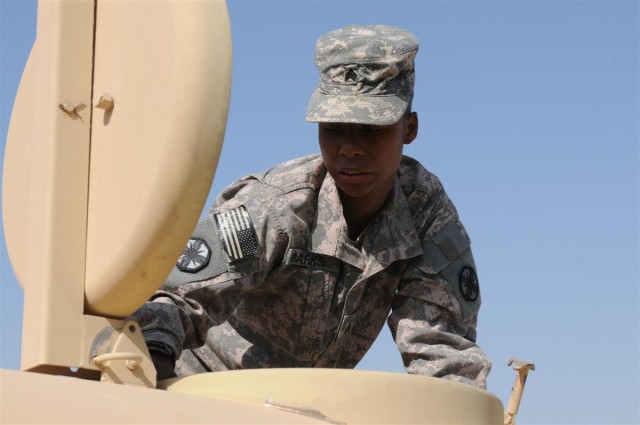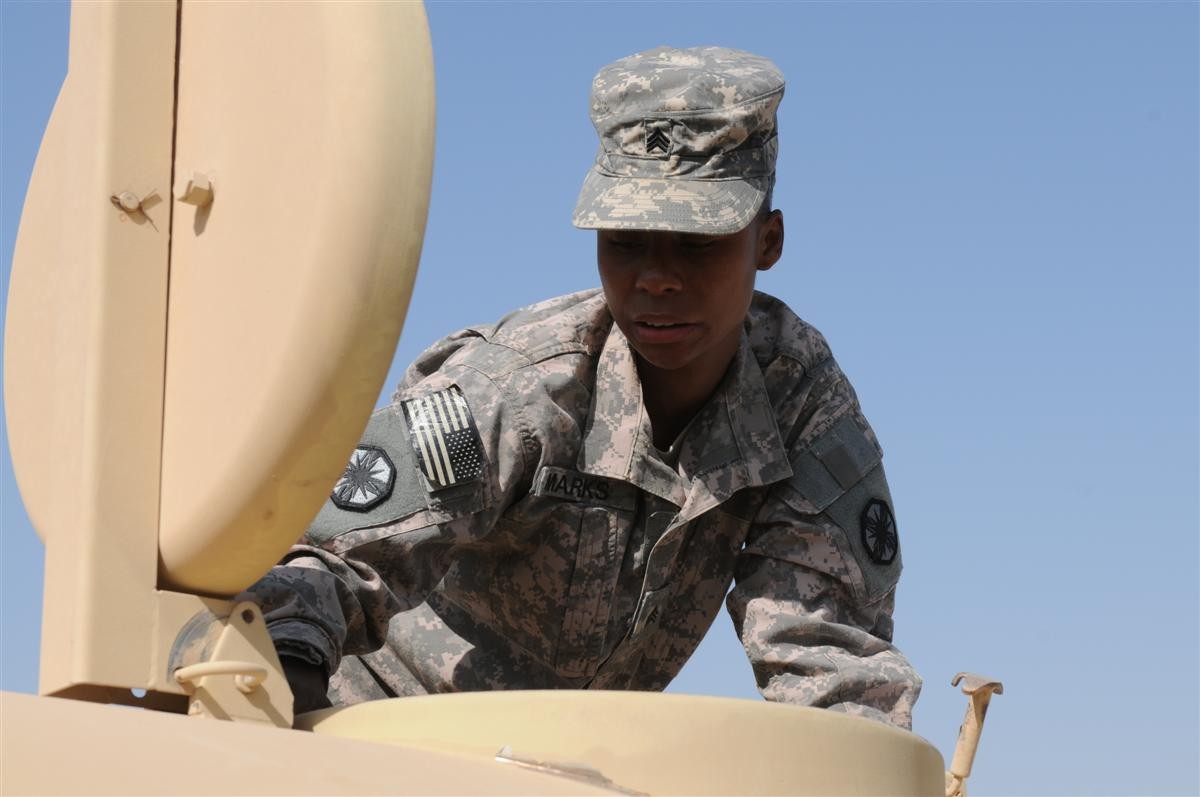
JOINT BASE BALAD, Iraq -Soldiers learned how to protect themselves from diseases, non-battle injuries and insects including spiders and scorpions, and how to keep them out of food, water and clothing at a field sanitation course at Joint Base Balad, Iraq.
The 223rd Medical Detachment hosted the field sanitation course Oct. 19 through Oct. 22.
Diseases and non-battle injuries present additional risks to service members serving in combat zones, said Capt. Roberto Sanchez-Perez, the medical operations officer in charge with the 13th Sustainment Command (Expeditionary) out of Fort Hood, Texas and a Humacao, Puerto Rico, native.
Sgt. Christina R. Marks, a 13th ESC food services specialist at Camelot, dining facility three, and a New Iberia, La., native, said she enjoyed the field sanitation training, which prepares Soldiers for field exercises, ensuring the health and safety of individuals while they are in the field.
As a cook, the training makes me more cautious and reinforces hand washing by service members, said Marks.
Staff Sgt. Misty M. Oppenheimer, the preventive medicine noncommissioned officer with the 223rd Medical Detachment out of Fort Carson, Colo., and a Bay Springs, Miss., native, said she teaches the Soldiers how to inspect water buffaloes and water trucks so they have a safe, potable water source in the field.
Oppenheimer said she also teaches Soldiers to check food temperatures to ensure food is safe to consume.
The field sanitation team tests water for pesticides, metals and anything that could harm the Soldiers, said Oppenheimer.
The class informs Soldiers that they may be exposed to insects, spiders, centipedes, etc., which pose a medical threat, she said.
Permethrin, which helps repel flies and mosquitoes, is used to treat the standard-issue Army combat uniform, said Oppenheimer. They cannot treat the flame-resistant ACUs, she said.
Marks said she plans to pass the training on to her Soldiers to prepare them for sanitation risks.
"I just believe every unit should have a field sanitation team," she said. "It is outstanding training, vital to the Army and to (maintaining) the Soldiers' health."
Oppenheimer said she has taught the field sanitation course for six years.
"I try to incorporate other things for the Soldiers to make sure they get as much hands-on training as possible," she said.
Sanchez-Perez said when the 40-hour training course is completed, service members will be able to implement basic preventive sanitation techniques for water buffaloes, water trucks and field kitchens, and know how to treat uniforms against pests.
He said the units should have a basic knowledge of preventive measures to minimize diseases and non-battle injuries such as hot-weather injuries, cold-weather injuries, vector-borne diseases and water-borne diseases.
Vector-borne diseases can include mosquitoes that transmit malaria or sand flies that transmit leishmaniasis, said Oppenheimer.
She said when she goes to other contingency operating locations, it helps her if the field sanitation team has done its job. This, in return, allows her team to do its job effectively, checking soil, water and air samples, she said.
She said she expects the Soldiers to instruct their commanders how to check a facility's level of sanitation, and whether or not that facility is safe for service members
"I expect them to be able to go back to their units, and their commander, and be an active field sanitation member," she said. "I try to make that my goal, to educate these Soldiers as much as I can."
The next class is scheduled to be held Nov. 16 through Nov. 19.

Social Sharing